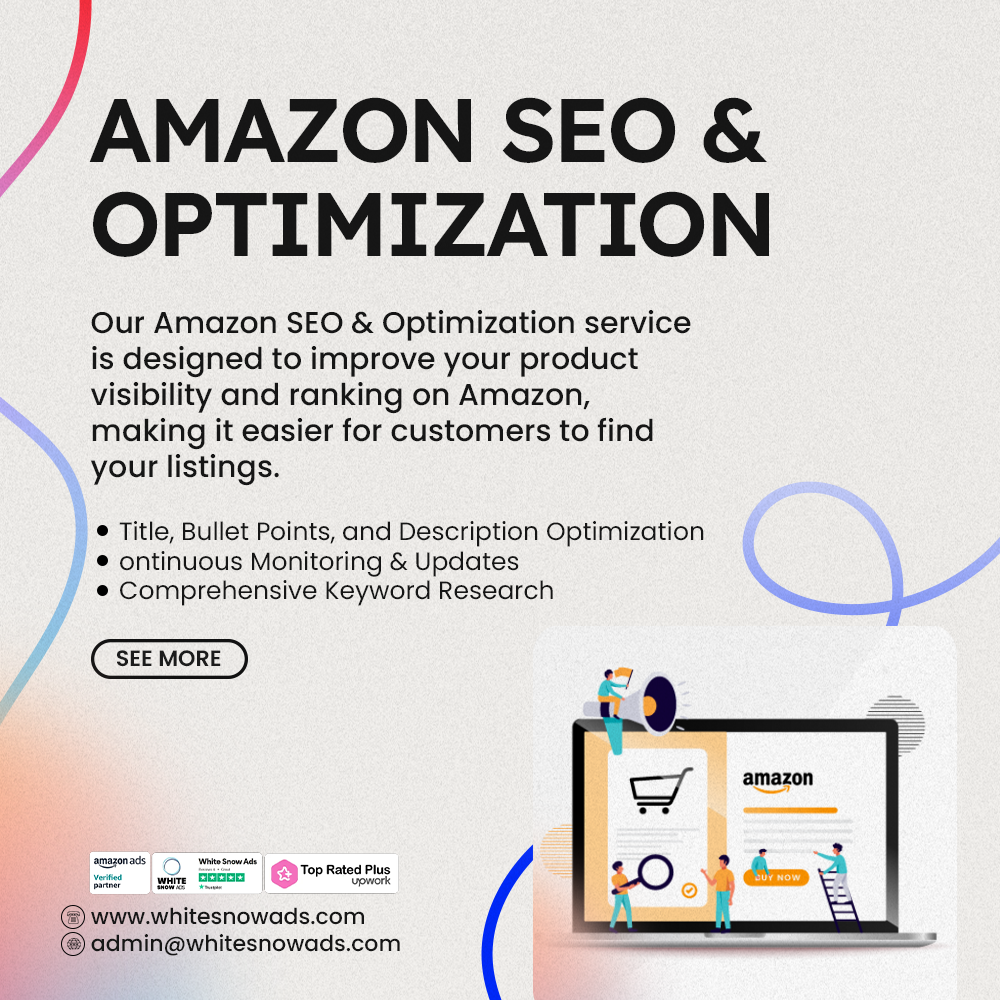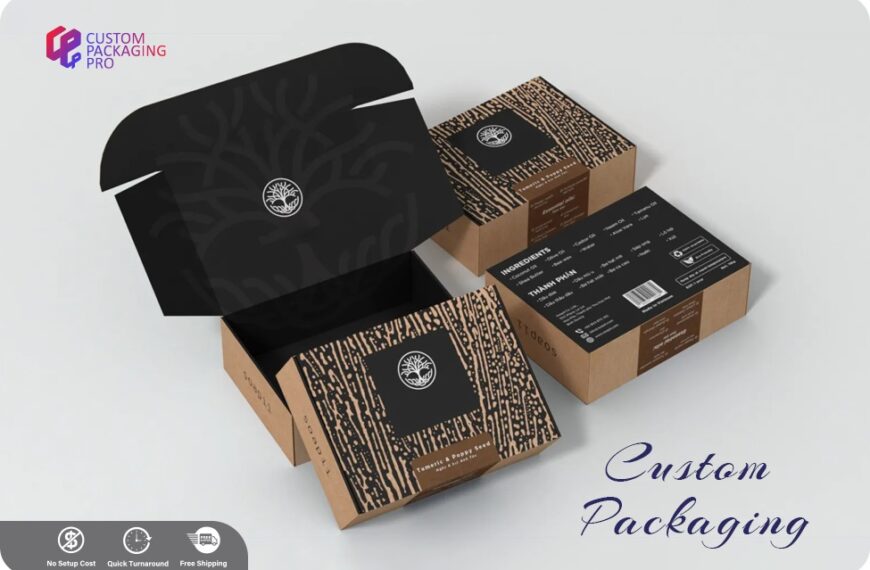If you sell on Amazon, your product listing is everything. A good listing gets seen, clicked, and bought. But if your product doesn’t show up in search results, it won’t sell—no matter how great it is.
That’s where Amazon SEO and Listing Optimization come in.
In this post, we’ll break down how Amazon’s search engine works, how to optimize your listings step-by-step, and tips to increase visibility and sales.
What Is Amazon SEO?
Amazon SEO stands for “Search Engine Optimization.” It’s the process of improving your product listings so they appear higher in Amazon search results when customers type in keywords.
Amazon’s search engine is called A9. It ranks products based on two main things:
- Relevance (how well your listing matches the search term)
- Performance (how well your listing converts—clicks and sales)
If your listing does both well, Amazon will rank it higher and show it to more shoppers.
Why Listing Optimization Matters
A strong Amazon listing helps you:
- Appear in more search results
- Get more traffic to your page
- Improve your click-through rate (CTR)
- Increase your sales and ranking
- Reduce returns with clearer product info
In simple words: Optimize your listings = sell more products.
Key Elements of a Fully Optimized Listing
Let’s go through the core parts of your listing and how to optimize each for better SEO and conversions.
1. Product Title
Your title is the first thing shoppers see. It must be clear, keyword-rich, and easy to understand.
Tips for a Great Title:
- Include your main keyword near the beginning
- Add important details (size, color, use, quantity)
- Avoid all caps and special symbols
- Keep it readable—don’t just stuff keywords
Example:
Instead of
“Best Quality Dog Leash for Pets Durable”
Try
“Heavy-Duty Dog Leash for Large Dogs – 6FT, Nylon, Reflective”
2. Bullet Points (Key Product Features)
Bullet points help shoppers scan your product details fast. They should highlight the top 5 benefits of your product.
Tips:
- Start each bullet with a benefit (not just a feature)
- Use CAPS for section headers (e.g., EASY TO USE – Simple design…)
- Include relevant keywords naturally
- Answer common customer questions
3. Product Description
Your description is the space to tell your brand story and go deeper into your product’s features.
Tips:
- Break it into small, easy-to-read paragraphs
- Use formatting (bold, caps) if using HTML (for FBM or older accounts)
- Focus on benefits and problem-solving
- Include long-tail keywords
4. Backend Search Terms (Hidden Keywords)
Amazon lets you add search terms that are invisible to customers but help A9 understand what your product is about.
Tips:
- Don’t repeat words already in your title or bullets
- Avoid commas, quotes, or unnecessary punctuation
- Use misspellings, synonyms, and alternate names
- Keep it under 250 bytes
5. Product Images
Images don’t directly affect SEO but they have a huge impact on sales, which affects rankings.
What You Need:
- At least 7 high-quality images
- White background for main image
- Lifestyle images to show the product in use
- Infographics explaining features
- Size comparison or packaging image
6. A+ Content (Enhanced Brand Content)
If you’re brand registered, A+ Content lets you replace the boring text description with custom visuals, charts, and banners.
Benefits:
- Boosts trust and brand identity
- Reduces return rates
- Helps explain complex features
- Improves conversion rate (CR)
7. Customer Reviews and Ratings
More positive reviews = more trust = more sales. And that improves your listing performance ranking.
Tips:
- Use Amazon’s “Request a Review” feature
- Follow up with customers post-purchase
- Never offer incentives for reviews
- Address negative feedback quickly and professionally
Keyword Research: The Heart of SEO
Your entire listing should be built around the right keywords—terms that real shoppers are searching for.
How to Find Keywords
Use keyword tools like:
- Helium 10
- Jungle Scout
- Amazon auto-suggest
- Competitor ASIN reverse lookup
Look for:
- High search volume
- Low to medium competition
- Buyer intent keywords (e.g., “buy,” “best,” “cheap,” “durable”)
Types of Keywords to Use
- Primary Keywords – The main term (e.g., “Bluetooth headphones”)
- Long-Tail Keywords – More specific terms (e.g., “Bluetooth headphones for gym”)
- Related Terms – Synonyms or similar phrases
- Backend Terms – Words that didn’t fit in title or bullets
Amazon SEO vs Google SEO: What’s the Difference?
Many people confuse Amazon SEO with Google SEO, but they are very different.
| Factor | Amazon SEO | Google SEO |
|---|---|---|
| Focus | Sales | Traffic/Info |
| Ranking Factor #1 | Conversion rate | Backlinks |
| Keyword Placement | Title, bullets, backend | Meta tags, content |
| Buyer Intent | High | Mixed |
So don’t treat your Amazon listing like a blog. Focus on what helps sell your product.
Mistakes to Avoid in Amazon SEO
Many sellers unknowingly make errors that hurt their rankings. Here are some to avoid:
Keyword Stuffing
Using too many keywords makes your content hard to read. Amazon may also suppress listings for spammy practices.
Ignoring Backend Keywords
Sellers often forget to fill out the hidden keyword fields—wasting a powerful SEO tool.
Poor Images
Even with perfect SEO, low-quality images drive shoppers away.
Weak Titles
A vague or unclear title will result in fewer clicks—and lower rankings.
Not Testing
SEO is not one-and-done. Monitor your performance and make small changes to improve over time.
How to Monitor Your SEO Success
After optimizing your listing, track your results using these tools:
- Amazon Brand Analytics (for registered brands)
- Business Reports – Track sessions, conversion rate, and unit session percentage
- Helium 10 Keyword Tracker – Monitor keyword ranking changes
- Customer Feedback – Are reviews getting better?
If your traffic, rankings, and sales go up—you’re on the right track.
Final Tips to Stay Ahead
- Keep your listing updated as trends and seasons change
- Optimize based on competitor analysis
- Regularly test new keywords and images
- Read customer reviews to find new pain points or feature ideas
Conclusion
Amazon SEO and Listing Optimization are essential for getting seen and selling more. By using the right keywords, clear images, and well-structured content, you’ll attract more buyers and boost your sales.
The best part? Unlike ads, SEO brings free traffic—all day, every day.
FAQs: Amazon SEO & Listing Optimization
How long does Amazon SEO take to show results?
You may start seeing results within 1–2 weeks, but full improvements can take 30+ days depending on competition.
Can I do SEO myself?
Yes! With the right tools and some time, any seller can optimize their own listings.
Do I need paid tools?
Free tools like Amazon Suggest and Search Term Reports are useful, but paid tools like Helium 10 offer more insights and save time.
What if my product still doesn’t rank?
Check your keyword use, images, reviews, and price. You may need to tweak your listing or boost it with ads temporarily.
Must Visit Our Site: White Snow Ads














